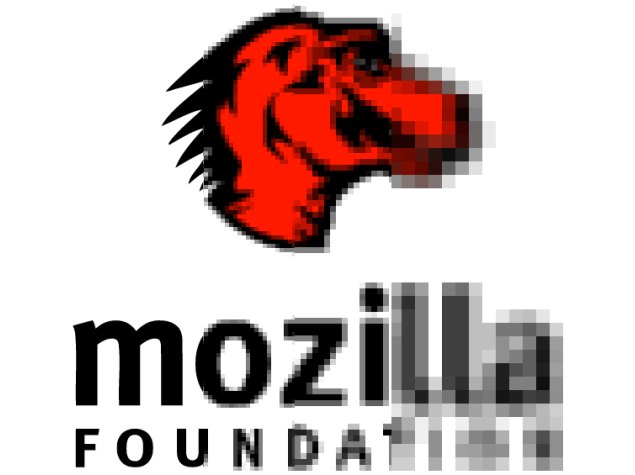- Home
- Internet
- Internet News
- Mozilla announces new JPEG encoder enabling smaller sizes, quicker page loads
Mozilla announces new JPEG encoder enabling smaller sizes, quicker page loads
By NDTV Correspondent | Updated: 7 March 2014 13:23 IST

Advertisement
Mozilla has announced a new JPEG encoder called Mozjpeg that is intended to reduce the sizes of JPEG files, thus allowing for quicker Web page load times. The move comes in response to the increasing use of larger pictures on Web pages and the strain this puts on Internet infrastructure. JPEG files far outweigh HTML, CSS and JS when considering the total amount of data that needs to be transferred when a Web page is loaded.
The JPEG format has been in use since 1992, long before the World Wide Web became a mass phenomenon, and has achieved near-universal compatibility with PCs, mobile phones, TVs and various other digital devices.
Mozilla's Mozjpeg project aims to optimize the existing standard rather than replace JPEGs entirely, which has been the goal of other similar projects, most notably Google's proposed WebP standard.
Mozjpeg version 1.0 is based on the libjpeg-turbo encoder with an additional Perl script called Jpegturbo. Mozilla says a test involving 1,500 images from the Wikimedia commons resulted in an average size reduction of 10 percent. The foundation already has plans for the next stage of optimisations it will integrate.
Developers who are interested in knowing more about Mozjpeg or contributing to the standard can join the official mailing list or check out the project's official Github page.
The JPEG format has been in use since 1992, long before the World Wide Web became a mass phenomenon, and has achieved near-universal compatibility with PCs, mobile phones, TVs and various other digital devices.
Mozilla's Mozjpeg project aims to optimize the existing standard rather than replace JPEGs entirely, which has been the goal of other similar projects, most notably Google's proposed WebP standard.
Mozjpeg version 1.0 is based on the libjpeg-turbo encoder with an additional Perl script called Jpegturbo. Mozilla says a test involving 1,500 images from the Wikimedia commons resulted in an average size reduction of 10 percent. The foundation already has plans for the next stage of optimisations it will integrate.
Developers who are interested in knowing more about Mozjpeg or contributing to the standard can join the official mailing list or check out the project's official Github page.
Comments
For the latest tech news and reviews, follow Gadgets 360 on X, Facebook, WhatsApp, Threads and Google News. For the latest videos on gadgets and tech, subscribe to our YouTube channel. If you want to know everything about top influencers, follow our in-house Who'sThat360 on Instagram and YouTube.
Popular on Gadgets
- Samsung Galaxy Unpacked 2025
- ChatGPT
- Redmi Note 14 Pro+
- iPhone 16
- Apple Vision Pro
- Oneplus 12
- OnePlus Nord CE 3 Lite 5G
- iPhone 13
- Xiaomi 14 Pro
- Oppo Find N3
- Tecno Spark Go (2023)
- Realme V30
- Best Phones Under 25000
- Samsung Galaxy S24 Series
- Cryptocurrency
- iQoo 12
- Samsung Galaxy S24 Ultra
- Giottus
- Samsung Galaxy Z Flip 5
- Apple 'Scary Fast'
- Housefull 5
- GoPro Hero 12 Black Review
- Invincible Season 2
- JioGlass
- HD Ready TV
- Laptop Under 50000
- Smartwatch Under 10000
- Latest Mobile Phones
- Compare Phones
Latest Gadgets
- iQOO Z10 Turbo Pro
- iQOO Z10 Turbo
- CMF by Nothing Phone 2 Pro
- Motorola Edge 60
- Motorola Edge 60 Pro
- Motorola Razr 60
- Motorola Razr 60 Ultra
- Realme 14T 5G
- HP EliteBook 6 G1a
- HP EliteBook 8 G1a
- Honor Pad GT
- Vivo Pad SE
- Moto Watch Fit
- Honor Band 10
- Xiaomi X Pro QLED 2025 (43-Inch)
- Xiaomi X Pro QLED 2025 (55-Inch)
- Asus ROG Ally
- Nintendo Switch Lite
- Toshiba 1.8 Ton 5 Star Inverter Split AC (RAS-24TKCV5G-INZ / RAS-24TACV5G-INZ)
- Toshiba 1.5 Ton 5 Star Inverter Split AC (RAS-18PKCV2G-IN / RAS-18PACV2G-IN)
© Copyright Red Pixels Ventures Limited 2025. All rights reserved.


![[Partner Content] OPPO K13 - The Undisputed OP Smartphone | Lag Killer Performance | Best in Segment](https://www.gadgets360.com/static/mobile/images/spacer.png)









